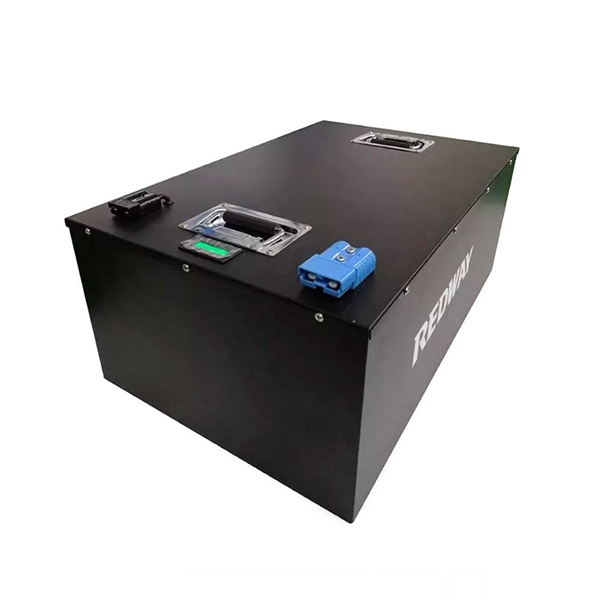-
Home
- About Liduo
- Product Center
- RV lithium battery
- Forklift lithium battery
- Wall mounted lithium battery
- Golf cart lithium battery
- Server rack battery
- lithium iron phosphate battery
- Solution
-
Portable battery
-
Power battery
-
Energy storage battery
-
Server battery
-
Special batteries
-
Household energy storage
- OEM Services
- R&D
- News

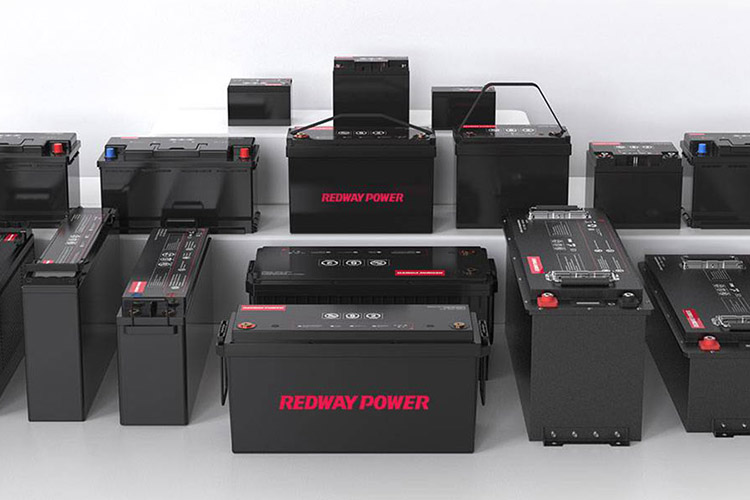 PRODUCT CENTER
PRODUCT CENTER60V 200Ah lithium battery
- Type:60V RV lithium battery
- Code:

-
Lithium battery Lithium iron phosphate (LFP)
Rated voltage 60.8V
Nominal capacity 200Ah
Nominal energy 12.16kWh
Dimensions (L * W * H) 997 x 598 x 181 mm / 39.3 x 23.5 x 7.1 inch
Weight 153 kg / 337 lbs
IP level IP67
- Product Description
Previous:60V 150Ah lithium batteryThis battery is the 60V 200Ah Lithium Battery, manufactured by Redway Power, a leading factory in China that specializes in high-performance lithium-ion batteries. Designed specifically for electric scooters, electric tricycles, e-motorcycles, sweepers, and automated guided vehicles (AGVs), this battery provides reliable power and exceptional efficiency for various applications.
Key Features
· High Capacity: With a nominal capacity of 200Ah and an impressive energy output of 12.16 kWh, this battery ensures extended operation for demanding applications.
· Durable Protection: Featuring an IP67 rating, this battery is fully protected against dust and water immersion, making it ideal for outdoor and rugged environments.
· Long Cycle Life: Capable of over 4,000 cycles at 80% depth of discharge (DOD), this battery minimizes the need for frequent replacements, ensuring long-term reliability and cost-effectiveness.
· Advanced Battery Management System (BMS): The intelligent BMS safeguards against overcharging, overheating, and short circuits, providing enhanced safety during operation.
· Customizable Design: Redway Power offers OEM and ODM services, allowing for tailored solutions to meet specific customer requirements.
Applications
The 60V 200Ah Lithium Battery is versatile and ideal for a wide range of applications, including:
· Electric scooters
· Electric tricycles
· E-motorcycles
· Sweepers and floor cleaning machines
· Tour low-speed vehicles (LSVs)
· Automated Guided Vehicles (AGVs)
· Electric forklifts
With a maximum charging voltage of 69.3V and a discharge cut-off voltage of 50V, this battery is optimized for various operational needs. It functions effectively across a temperature range from -20°C to 65°C, making it adaptable to different environments.The robust design allows for easy installation while ensuring that your equipment operates efficiently throughout the day. Additionally, it supports fast charging capabilities, enabling quicker turnaround times between uses.
As a trusted manufacturer, Redway Power is dedicated to delivering high-quality lithium-ion batteries that enhance productivity and sustainability in your operations. The 60V 200Ah Lithium Battery not only reduces downtime but also contributes to lower operational costs due to its efficiency and long lifespan.Investing in this battery means choosing a reliable power solution that meets the demands of modern electric vehicles and industrial applications while supporting your business’s growth and sustainability goals. Choose Redway Power for your lithium battery needs and experience unparalleled performance and service.
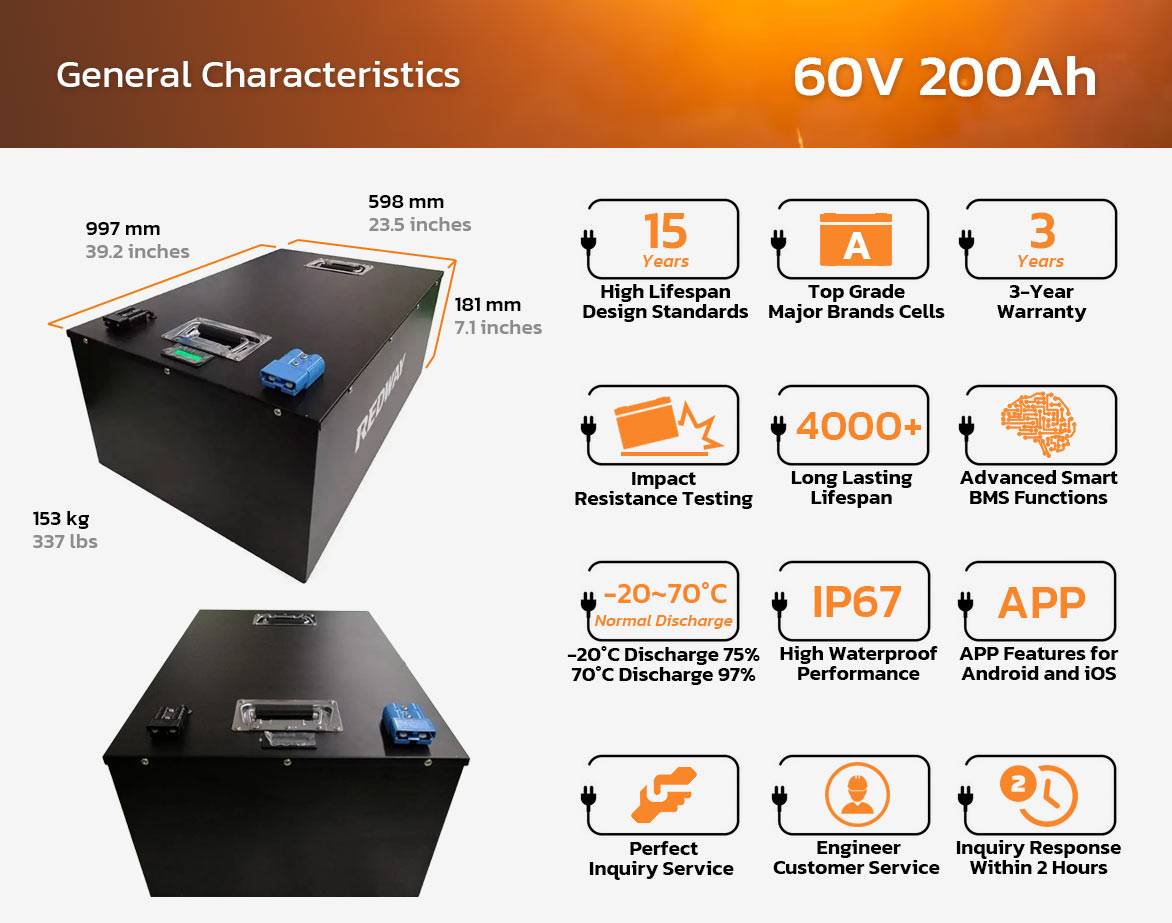
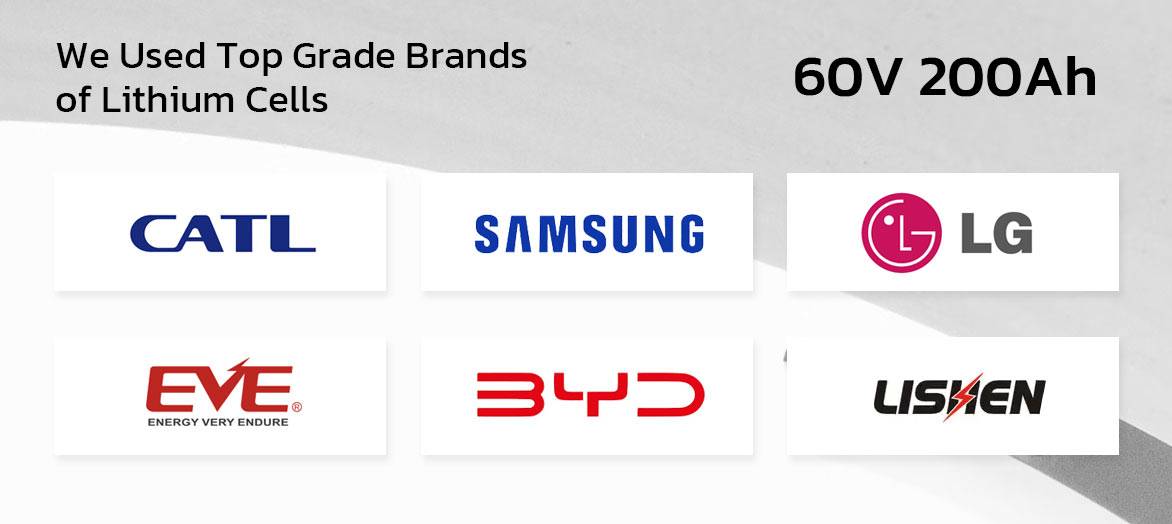
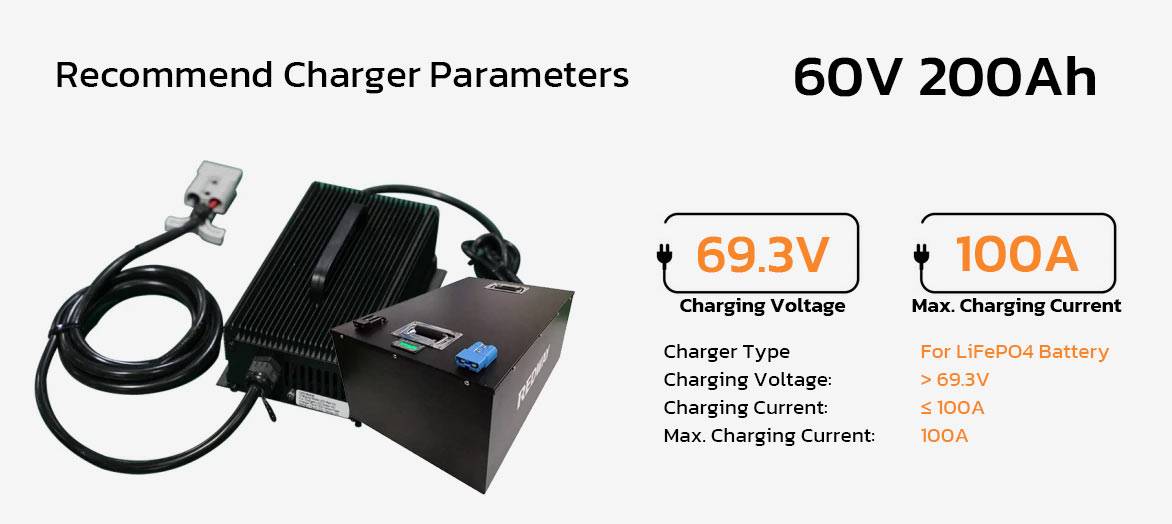
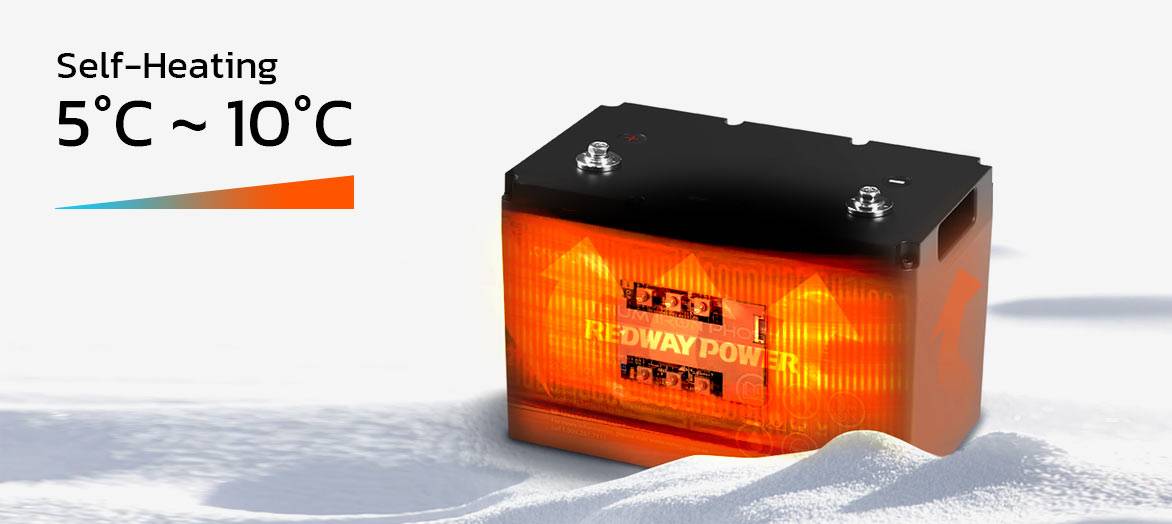
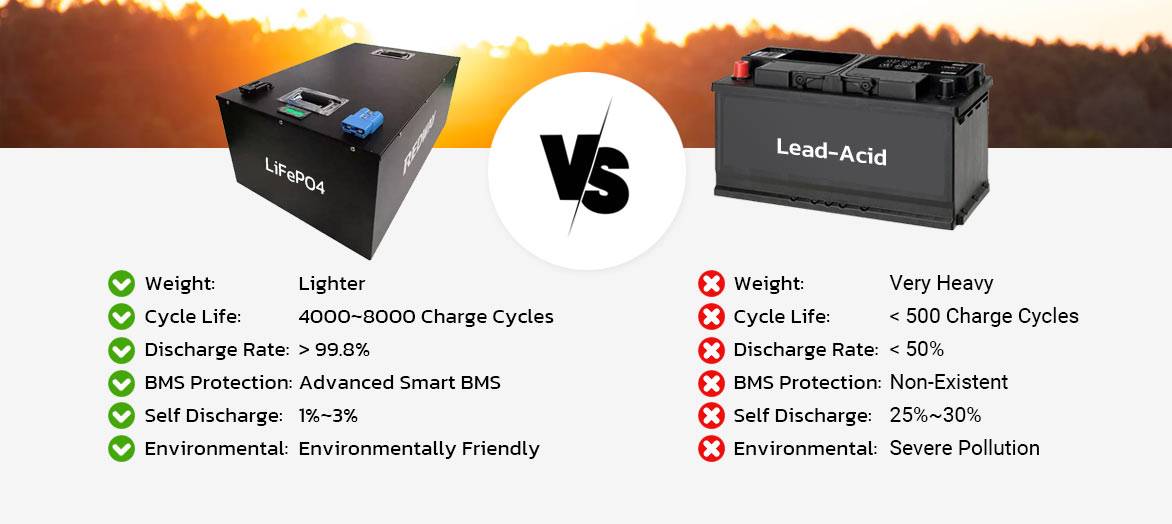
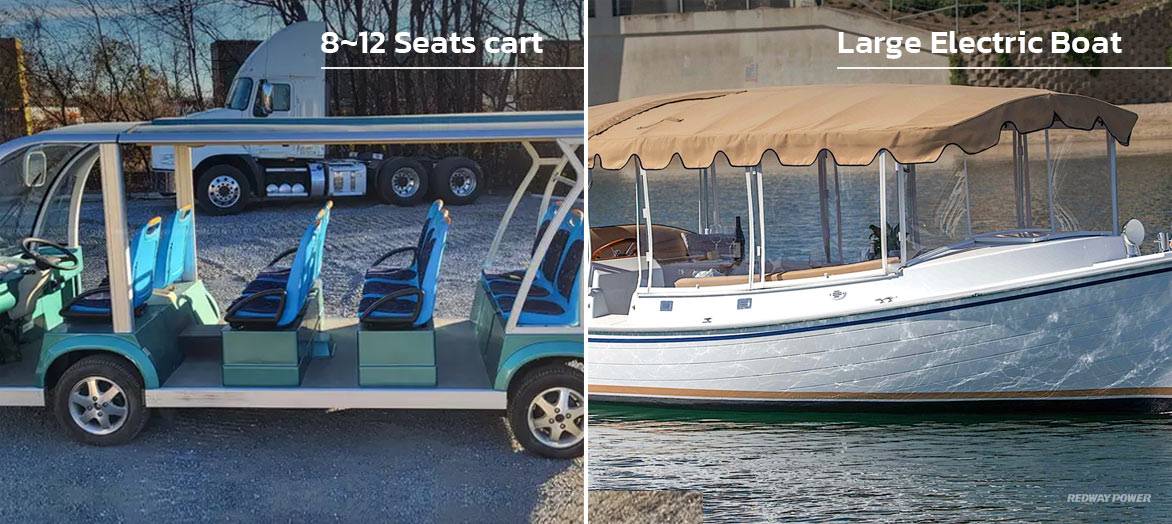
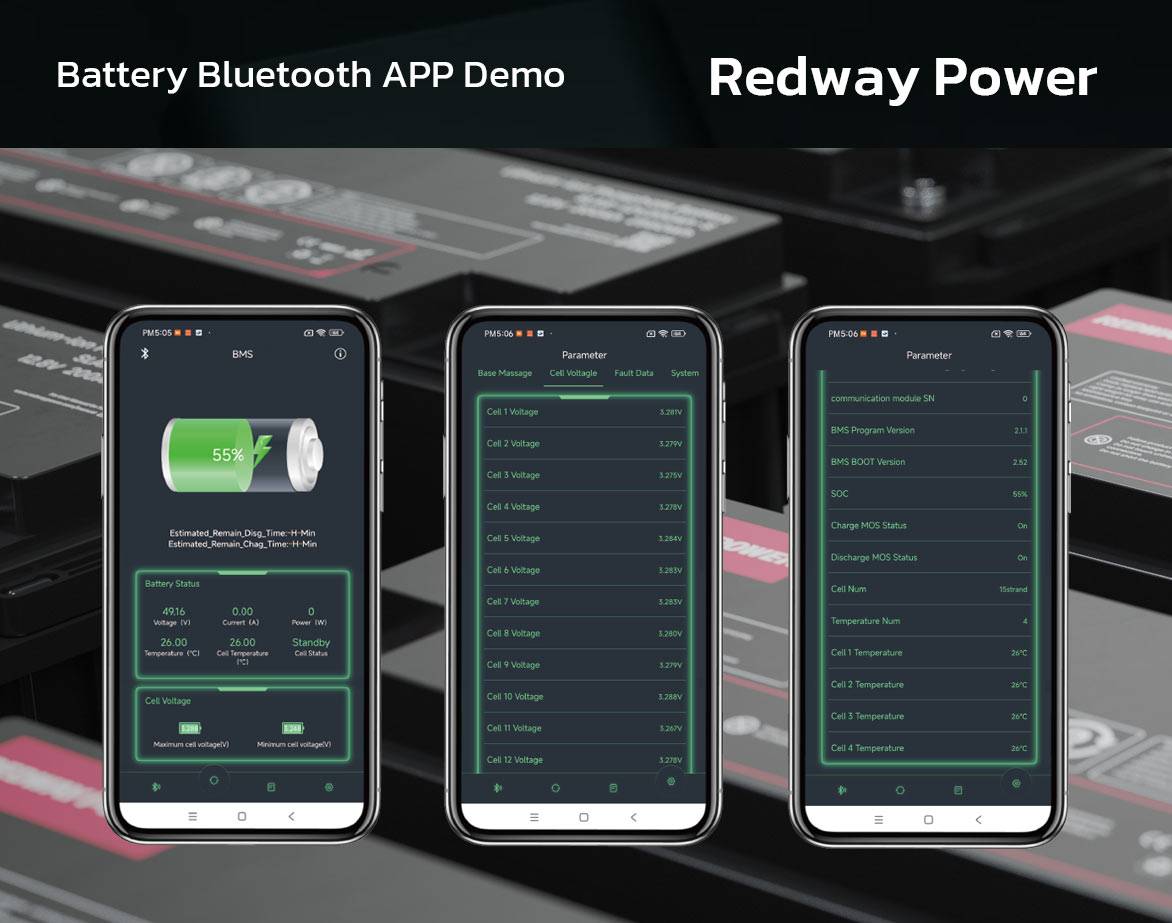
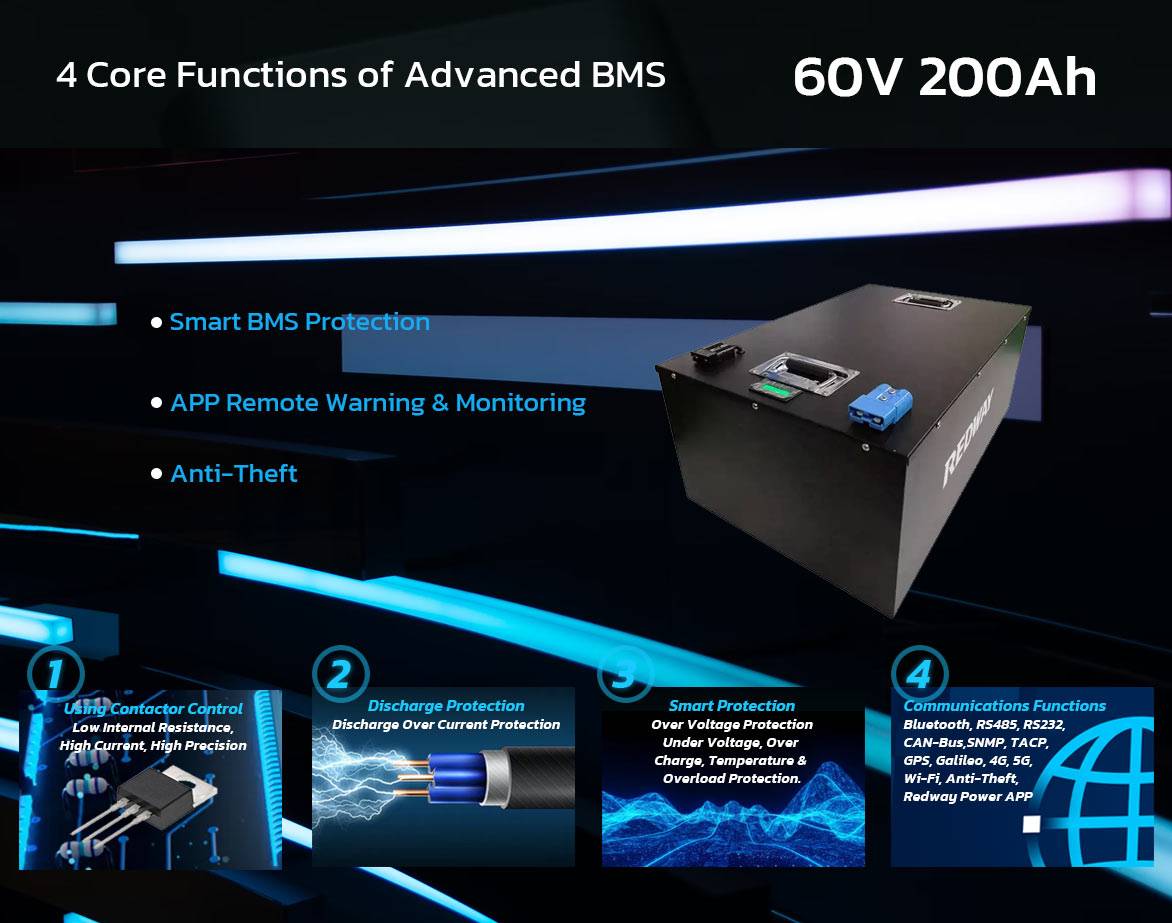
60V200Ah Specifications Cell Type LiFePO4 Nominal Voltage 60.8V Nominal Capacity 200Ah Nominal Energy 12.16kWh Charge Voltage 69.3V Discharge Voltage 47.5V Max. Continues Charge Current 100A Max. Continues Discharge Current 150A Peak Discharge Current 300A (3 Sec.) Charger Fast Charger / CC / CV Dimensions
[L x W x H]997 x 598 x 181 mm
39.3 x 23.5 x 7.1 inchWeight 153 kg
337 lbsIP Rating IP67 (More request) Cycle Life >4000 cycles (DOD 80%) Self-Discharge 3% (Per month) Charge Temperature 0°C ~ 60°C
32°F ~ 140°FDischarge Temperature -20°C ~ 65°C
-4°F ~ 149°FLCD Screen Yes Optional Functions Bluetooth / WiFi / LED Touch Screen / RS485 / RS232 / CAN / 4G, 5G / GPS / APP BMS Intelligent BMS protection Battery Case Metal Design Life 15 Years Warranty 3 Years Silk-Screen / Label Printing Yes User Manual / Warranty Card Yes Customization / OEM / ODM Yes Shipment Yes Certifications IEC, UN38.3, MSDS (More request) What is the difference between 200Ah and 220Ah battery?
The primary difference between a 200Ah and a 220Ah battery is their capacity to store energy. A 220Ah battery can provide more power for a longer duration compared to a 200Ah battery, making it suitable for applications that require extended backup time or higher energy demands.
What is the difference between 100Ah and 200Ah lithium batteries?
A 200Ah lithium battery has double the capacity of a 100Ah battery, allowing it to deliver more energy over a longer period. This means it can power devices for extended durations, making it ideal for high-demand applications, while the 100Ah battery is better suited for smaller loads.
What voltage is 50% for lithium battery?
For a typical lithium battery, approximately 50% state of charge (SOC) corresponds to around 3.2V to 3.3V per cell. For a 48V lithium battery, this translates to about 46V. Monitoring voltage levels helps maintain optimal performance and longevity.
What is the cut-off voltage for a 60V lithium battery?
The cut-off voltage for a 60V lithium battery is typically around 54V. This value is crucial to prevent over-discharge, which can damage the battery cells and reduce overall lifespan. Always refer to manufacturer specifications for precise cut-off values.
Can I use a 48V charger to charge a 60V battery?
Using a 48V charger to charge a 60V battery is not recommended as it may not provide sufficient voltage for charging. A charger designed specifically for 60V systems ensures proper charging and maintains the health of the battery.
Does 2 100Ah batteries in series equal 200Ah?
Yes, connecting two 100Ah batteries in series effectively creates a system with 200Ah capacity at the same voltage. This setup doubles the voltage while maintaining the same amp-hour rating, making it suitable for higher voltage applications.
How many solar panels do I need to charge a 200Ah lithium battery?
To charge a 200Ah lithium battery, you typically need around 400-600 watts of solar panels, depending on your location and sunlight availability. This setup allows efficient charging within about 5-8 hours of peak sunlight, using an appropriate charge controller.
What size inverter do I need for a 200Ah lithium battery?
For a 200Ah lithium battery, an inverter should be rated according to your maximum load requirements. Generally, an inverter in the range of 1000W to 3000W is suitable, depending on the devices you plan to power simultaneously.
Is it better to have more amps or volts from solar panels?
It depends on your system design; however, having more volts can be beneficial as it reduces current flow, which minimizes losses in wiring. Higher voltage systems are often more efficient, especially over long distances, while adequate amps are necessary to meet your energy needs.
Can you mix a 100Ah and 200Ah battery?
Mixing a 100Ah and a 200Ah battery is not recommended due to differences in discharge rates and charging characteristics. This can lead to uneven wear and reduced lifespan for both batteries. It's best to use batteries of the same type, capacity, and age for optimal performance.
Is it better to have 2 100Ah lithium batteries or 1 200Ah lithium battery?
Using two 100Ah lithium batteries can provide flexibility and redundancy, allowing easier monitoring and maintenance. However, one 200Ah lithium battery may be more space-efficient and simpler to manage depending on your system design and energy needs.
-
About Us
Company Profile History Organizational Honor -
Product Center
Forklift lithium battery Rv lithium battery Wall-mounted lithium battery Golf cart lithium battery -
Solution
Energy storage battery Power battery Server battery -
Know us
News center Contact us -
Contact us
0769-89333805 No. 78, Puxing East Road, Qingxi Town, Dongguan City mg@redwaycn.com
Copyright 2025 Dongguan Liduowei new energy Co., LTDTechnical support:Emore - About Liduo

